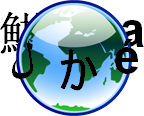Small Wikipedia Community Sustainability/Why bother


| “ | Artificial life support of whatever unique cultural phenomenon and/or languages and worldviews relied on when it came into being or was later in active use, without proven utility of the latter for addressing current life's practical tasks is no more valuable than worshipping cuneiform or any other historic technology. | ” |
This page is dedicated to describing why the project objective of assuring equal Digital Language Diversity Sustainability for all languages matters for achieving the Vision of the Wikimedia movement, Purpose of Wikipedia, thus for its volunteer contributors and its stakeholders.
This work has matured in discussions on the Wikimedia Language Diversity volunteer community's Russian-language Telegram chat following the proposal of HalanTul of the Sakha Wikipedia to come back to the 2018 Russian Wikinews 5 piece publication theme of Why Do You Need Wikipedia? by Рөстәм Нурыев of Bashkir Wikipedia and look at it from Wiki-Multilingualism perspective. All related comments and contributions of global Wikimedians through other channels were summarized and published here first by Farhad Fatkullin (Kazan, Russia), with official presentation in Tatar at the plenary & proceeds of 3nd Russia-wide "Language, Society and Information Technologies" Scientific and Practical Conference (16-17 Feb. 2024), following similar ones in 2023 and in 2022.
The work is dedicated to analysing the nature, types and amount of one-off and ongoing investments necessary to assure that separate languages and related ethno-cultural knowledge are not limited to the «free-time cultural entertainment» shelves of the digital supermarket (low added value, efforts towards preserving multilingualism and multiculturalism are not worth it), but are integrated into all working processes and services used throughout the life cycle (high added value, necessary investements generate high returns). It is concluded that the treasure of human multilingualism can only be preserved through tighter integration of disjointed solutions, assuring all languages have equal access to textual and voice interface.
Thesis
[edit]Sci-tech progress provided humanity with an opportunity to almost complete building a quasi-ideal digital Babylon — the world in which everyone can cooperate with others, whilst the natural languages used by people for self-expression do not really matter much.
In case of the symbolic ethnocultural worlds where specific natural language serves as a sign of belonging to the group and respective historic cultural identity — vitality of the language is preserved by means of minimizing or otherwise regulating individual's contacts with the external world, as well as through prescribing cultural reclusion.
In case of knowledge economy only the language(s) that serve as effective interface for productive participation in permanently transforming industrial, service, post-informative and sci-tech research activities, as well as developing the related contemporary social culture preserve instrumental value for an individual.
Just like in the corporate world, where entities group together into value-creation chains and other cooperation formats, digital era individual's attention to a specific natural language should be adequately rewarded in the material and social worlds. A language unsupported by popular socio-economic platforms is irrelevant, just like an unnecessary tool. One-off investments for transformation of existing social systems to integrate multilingual support and ongoing costs to maintain this servicing infrastructure operational are justified for human society only if these have positive & competitive ROI.
Increasing the quantity and diversity of ecosystem/platform participants makes it both more sustainable and attractive to users. In parallel, it should offer tools to support specialized spaces serving various communities with their specific conceptual and terminologic apparatus to address their most current needs. If preserving a unique prism offered by a separate linguistic cultural world that evolved and perfected over the course of millenia is valuable for sustainability of human ecosystem, then its vitality deserves equal toolset and other rights given all others irrespective of the current number of its users.
Some degree of standardization of supporting infrastructure and scaling of its services ends up having advantages over supporting parallel independent linguistic-cultural ecosystems. Additional socio-economic value is captured by shifting from hierarchic vertical control systems in favor of cooperation-of-equals network-centric horizontal ones. This is further complemented by the possibility of easier engagement of a diverse pool of participants into various projects, enriching the latter by their unique vision and experience, speeding up the process of improving applied approaches-methods-technologies (increasing added-value generation).
With scientific models, applied technologic solutions and successful pilots available, key obstacle for wide-scale application ends up being social — the need for individuals to accept moral responsibility & make personal choice in favor of critical consideration and transformation of applied organizational process models, addressing related unease and desire to do business as usual (preserve status quo). Just like biological species, languages and cultures are preserved only through adapting towards permanently evolving ecosystem conditions — thus opposing the inevitable changes attitude is better replaced by supporting experimentation to speed up discovery of improvements.
Investments into sustaining multilingual environment have tangible benefits at all levels of society, beginning from separate individual or a family, but these are particularly visible at the ecosystem level: this includes multilingual traffic and road side signs, posters and plaques, textual interface in apps, social networks and portals or vocal support by human operators or virtual assistants.
See also
[edit]References
[edit]- ↑ Farhad Fatkullin Wikipedias in the languges of Russia today and tomorrow: why and how?, Finno-Ugric Wikiseminar, Petrozavodsk, 6-9 May 2016
